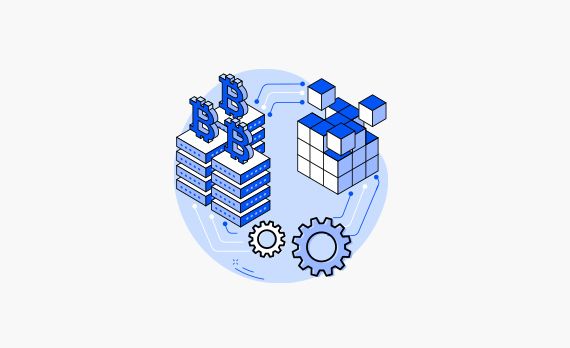Top Blockchain Protocols 2024
Review

The blockchain ecosystem is rapidly growing beyond the original roots of cryptocurrency and is spreading to numerous other sectors, which require a better understanding of fundamental technologies driving this development. The heart of this transformation is blockchain protocols, which are the rulebooks for safely and effectively processing data across a network. They seek to improve decentralization, scalability, consistency, and safety in networks.
Check out the leading 12 blockchain protocols revolutionizing industries, from Bitcoin’s decentralized transactions to Ethereum‘s smart contracts and beyond. Find out how platforms such as CoinDepo use blockchain to support growth.
Top Blockchain Protocols
- Bitcoin. The first cryptocurrency protocol adopted is Bitcoin, which transforms financial transactions by removing intermediaries and guaranteeing irreversible transfers, and through double-spending prevention. Its decentralized nature and its proof-of-work consensus model further highlight its strength, which makes it impossible to manipulate.
- Ethereum. Ethereum aims at smart contracts and enables automated transactions based on certain conditions. It is known for scalability and support of a wide variety of decentralized applications with high throughput.
- Quorum. Designed specifically for the finance industry and created by J. P. Morgan, Quorum takes the capabilities of Ethereum into enterprise applications. It emphasizes privacy and efficiency in financial transactions using the smart contract and incorporating the ecosystem of Ethereum.
- Cardano. In its focus on a proof-of-stake mechanism, Cardano seeks to achieve energy efficiency and scalability of smart contracts and dApps. Its Ouroboros protocol attests to its dedication to responsible and safe blockchain solutions.
- Corda. Being a product of the R3 consortium, Corda caters to needs in the financial industry with security and interoperability. It provides support for various consensus mechanisms, allowing smooth transactions across the financial industry.
- TRON. To enter the entertainment industry, TRON helps digital content creators publish and monetize digital content. It is one of the strong pillars in decentralizing the distribution of content. TRON provides a sound platform for smart contracts and dApps.
- Binance Smart Chain. One of the solutions for dApp developers who require scalability is Binance Smart Chain. It is known for its high speed and low cost. It utilizes an energy-efficient proof-of-stake authority consensus model, which provides quick processing.
- Cosmos. With the goal of a blockchain-based internet, Cosmos features interoperability and scalability. It provides asset and data cross-chain transfer, which provides the underlying layer for a large variety of applications.
- Polkadot. This protocol makes blockchains that are not related to each other communicate, share data, and build a multichain network ecosystem. The operation of the Polkadot is responsible for the development of complex, interconnected applications and thus moves forward the idea of the decentralized web.
- Hive. Specifically designed for decentralized social media, Hive offers a vibrant and robust community that supports content creators through swift transaction functionality. Its focus on interaction and cooperation helps it to occupy a special niche in the blockchain industry.
- Solana. With high throughput and low transaction cost, Solana is among the most chosen development platforms for decentralized finance applications. It has a unique consensus mechanism that supports numerous transactions per second and is the ideal fit for both developers and users.
- Hyperledger. The Linux Foundation promotes Hyperledger, a permissioned blockchain that is suitable for enterprise software. It provides a modular architecture and smart contract functionality, contributing to secure and effective commercial transactions in many fields.
Within these protocols, it is necessary to accentuate innovative platforms such as CoinDepo with its attractive Compound Interest Accounts in the cryptocurrency galaxy. Demonstrating one of the best use cases of employing digital currencies, CoinDepo brings together the practicality and the financial potential of blockchain technology, creating an avenue to grow investments with compound interest.
Conclusion
The blockchain space is still in the process of evolution, but the fact that there are so many protocols attests to its adaptability and flexibility as applied in different use cases. Each protocol has its strengths specific to needs and industries, with Bitcoin providing the foundational level and Hyperledger being more of an enterprise-focused solution.
The decision on which protocol is better lies between the developer and the organization and involves creating tradeoffs between security, scalability, and application-driven requirements. Looking ahead, the ability to keep ourselves updated and flexible in the swings of the blockchain environment is an important element of success.


